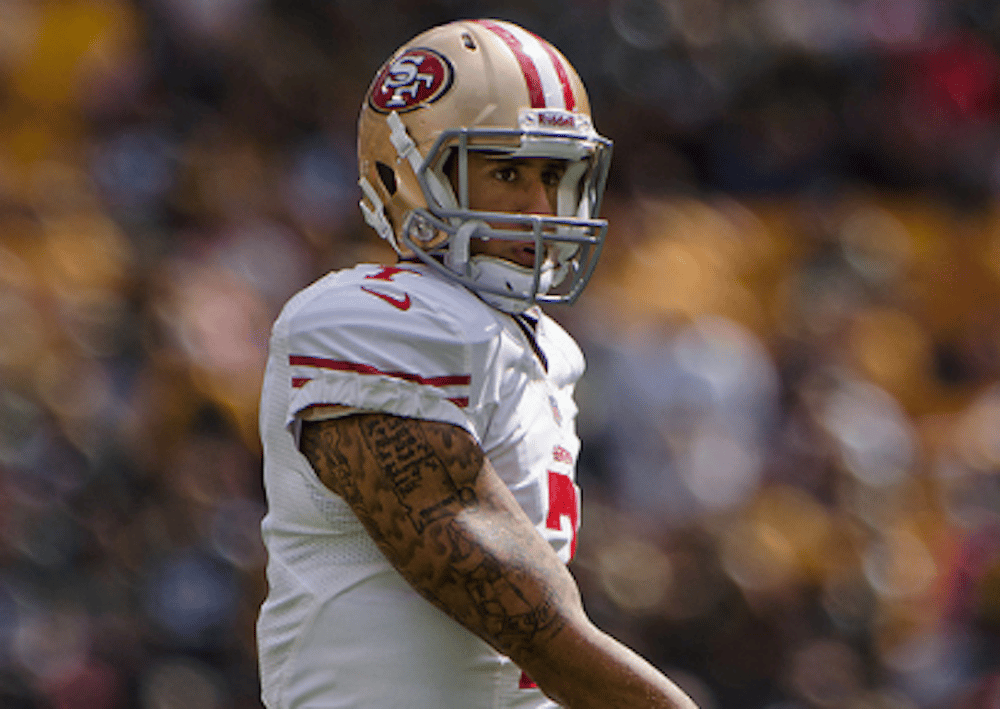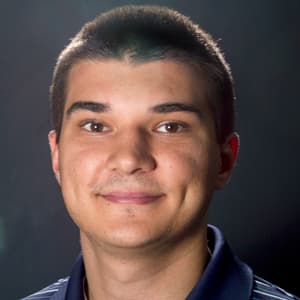
Colin Kaepernick first kneeled during the national anthem as a way to protest racial inequality in America in August 2016. Thirteen months later, hundreds of NFL players followed suit on the heels of President Donald Trump calling football players who kneeled "sons of bitches." Kaepernick still doesn't have a job in the NFL, and it's fair to wonder now if he'll ever get one. In 1996, former Denver Nugget Mahmoud Abdul-Rauf protested during the national anthem. He didn't have much on NBA career after he did. The parallels between Abdful-Rauf's situation and Kaepernick's are hard not to notice.
Colin Kaepernick sparked a national debate when he explained his decision not to stand during the national anthem in the San Francisco 49ers' preseason game Friday. The 1995-96 Denver Nuggets might have a guess at what happens next.
“I am not going to stand up to show pride in a flag for a country that oppresses black people and people of color,” Kaepernick told NFL.com after the game. “To me, this is bigger than football, and it would be selfish on my part to look the other way. There are bodies in the street and people getting paid leave and getting away with murder.”
Kaepernick’s message — that black people continue to be treated unfairly in this country — reignited that debate.
You have to go back two decades to find an instance of an American athlete doing something similar. In the middle of the 1995-96 season, the Denver Nuggets’ Mahmoud Abdul-Rauf decided he wouldn’t stand during "The Star Spangled Banner."
The Nuggets’ sweet-shooting guard explained that decision by saying, “I’m a Muslim first and a Muslim last. My duty is to my creator, not to nationalistic ideology.”
Abdul-Rauf, born as Chris Jackson in Gulfport, Mississippi, was protesting America’s treatment of Muslims. He converted to Islam in 1993 after being inspired by “The Autobiography of Malcolm X.”
His decision to sit was not received well. The NBA suspended him without pay indefinitely. Abdul-Rauf missed a game before he and the NBA came to an agreement: Abdul-Rauf could stand and silently pray into his hands as "The Star-Spangled Banner" played before every game.
Still, the damage was done. Abdul-Rauf received hate mail. Dear Mr. Adbul-Rauf, Go back to Africa, someone wrote. Three Denver radio personalities even went into a mosque and blared “The Star-Spangled Banner” on a trumpet and bugle.
Shortly after he was reinstated, Adbul-Rauf and the Nuggets embarked on a six-game road trip. He was met with boos in Detroit and Chicago. He injured his foot in New Jersey and missed the rest of the year. He ended up averaging 19.6 points and made nearly 40 percent of his 3s in 57 games that season.
But when it was over, the Nuggets traded him to the Sacramento Kings. His minutes were slashed in two seasons there, and by 1998 he was out of the league at 29 years old. He bounced around Europe, waiting for a chance. An attempted comeback in 2000 with the Vancouver Grizzlies didn't take.
"After the national anthem fiasco, nobody really wanted to touch me," Abdful-Rauf said in 2010.
Abdul-Rauf’s career ended prematurely, and it’s fair to wonder whether Kaepernick’s will as well. Kaepernick played backup for the 49ers last year, mostly. He looked nothing like the young, dual-threat QB who led San Francisco to a Super Bowl in 2013. This could be the final blow to his NFL career.
Whatever happens, Kaepernick can say he got people to discuss the issue.
A popular Fox Sports columnist called Kaepernick “an idiot” for his beliefs that America oppresses black people. On the other side, ESPN’s Bomani Jones defended Kapernick, writing that, “contrary to popular belief, stands do not create divisions and fissures. They amplify them.”












